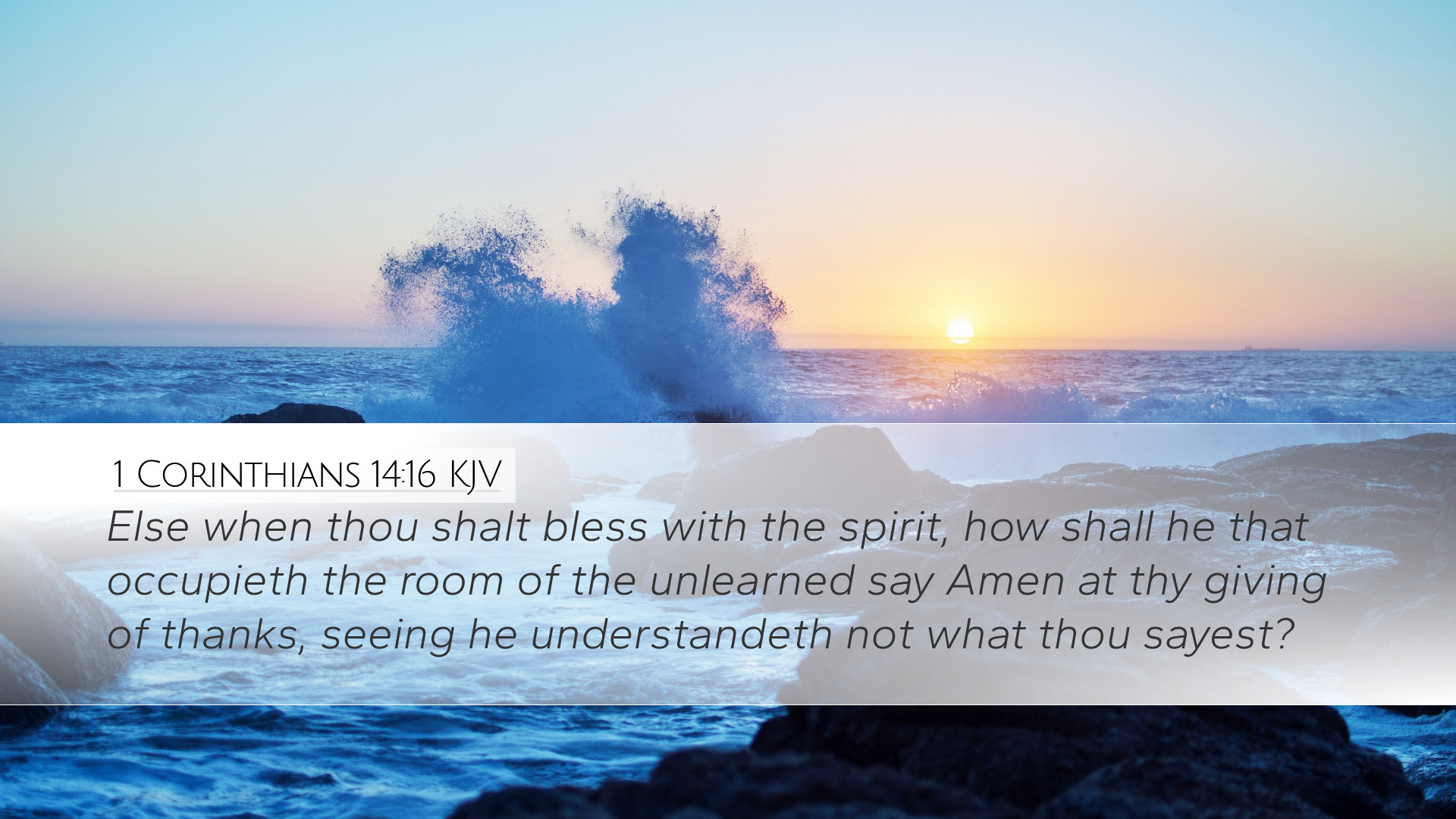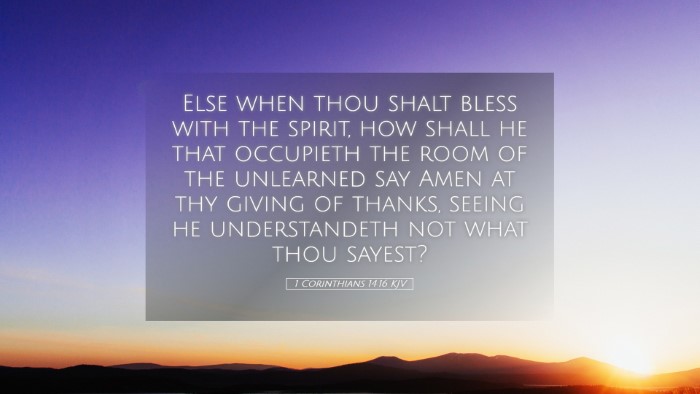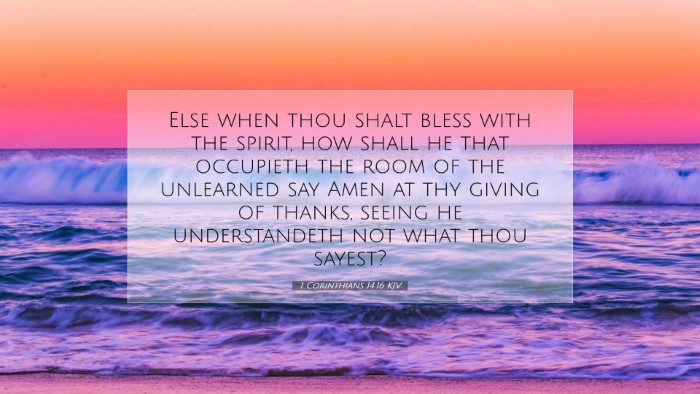Commentary on 1 Corinthians 14:16
Verse: "Otherwise, if you bless with the spirit, how will the one who occupies the place of the outsider say 'Amen' to your thanksgiving, since he does not understand what you say?" (1 Corinthians 14:16, ESV)
Introduction
In this verse, the Apostle Paul addresses the importance of understanding and clarity in the worship setting, particularly in the use of spiritual gifts. His emphasis is on the communal aspect of worship and the significance of building up the body of Christ through intelligible communication.
Contextual Background
The Corinthian church, known for its spiritual gifts and chaotic worship practices, faced challenges that Paul sought to address. As he engages with the issue of speaking in tongues and the exercise of spiritual gifts, he underlines the need for orderliness and edification in the church's assembly.
Insights from Public Domain Commentaries
Matthew Henry's Commentary
Matthew Henry emphasizes the confusion that can arise when worship lacks intelligibility. He notes that if one blesses God with a language that others do not understand, it is likely to lead to alienation rather than edification. Henry highlights the need for unity in worship and stresses that true thanksgiving should be conveyed in a manner accessible to everyone present.
Albert Barnes' Notes
Albert Barnes provides a careful examination of Paul's teaching, noting that the phrase "the outsider" refers to an unlearned or uninformed person in the context of worship. He argues that for worship to be effective, it must engage the congregation, enabling every participant to respond meaningfully. Barnes points out that saying "Amen" is an affirmation of agreement and involvement, which underscores the necessity for clear communication in praise.
Adam Clarke's Commentary
Adam Clarke expounds upon the social dynamics of worship and the significance of communal participation. He remarks on the vital role of understanding the content of worship and the implications of excluded individuals. Clarke emphasizes that without comprehension, outsiders cannot genuinely participate, which diminishes the overall spirit of communal worship and thanksgiving. He also touches on the aspect of personal edification, where understanding the words of praise enhances one's spiritual experience.
Theological Implications
The theological insights from these commentaries point toward a communal view of worship where knowledge and understanding play pivotal roles. Paul’s emphasis is not just on the exercise of spiritual gifts but on their purpose—to build up the church and promote unity.
- Unity in Worship: The necessity for a shared understanding to foster communal unity is vital. Worship should not alienate but rather include all participants.
- Encouragement and Edification: The ultimate goal of corporate worship is the encouragement and edification of the body of Christ.
- Participation: Every member, regardless of their spiritual maturity or understanding, should be enabled to engage with the worship, affirming their faith and presence.
Practical Applications
This verse challenges modern worship practices, urging leaders to consider the comprehension level of their congregations. It also serves as a reminder of the importance of clear communication in teaching and worship settings. Here are some practical applications:
- Incorporation of Interpretation: If tongues are used in worship, there should always be an interpretation to ensure that the congregation can both comprehend and respond.
- Choice of Language: Those leading worship should be sensitive to the language used, ensuring it is accessible to all, fostering an inclusive atmosphere.
- Teaching Moments: Use opportunities to explain and teach about the significance of certain practices in worship, helping to deepen understanding among the congregation.
Conclusion
Paul’s exhortation in 1 Corinthians 14:16 serves as a foundational principle for worship: clarity is crucial. The commentaries remind us that every believer benefits from participating in worship that is meaningful and understandable. As leaders and participants in corporate worship, we are called to ensure that our practices promote inclusion, engagement, and spiritual growth.


